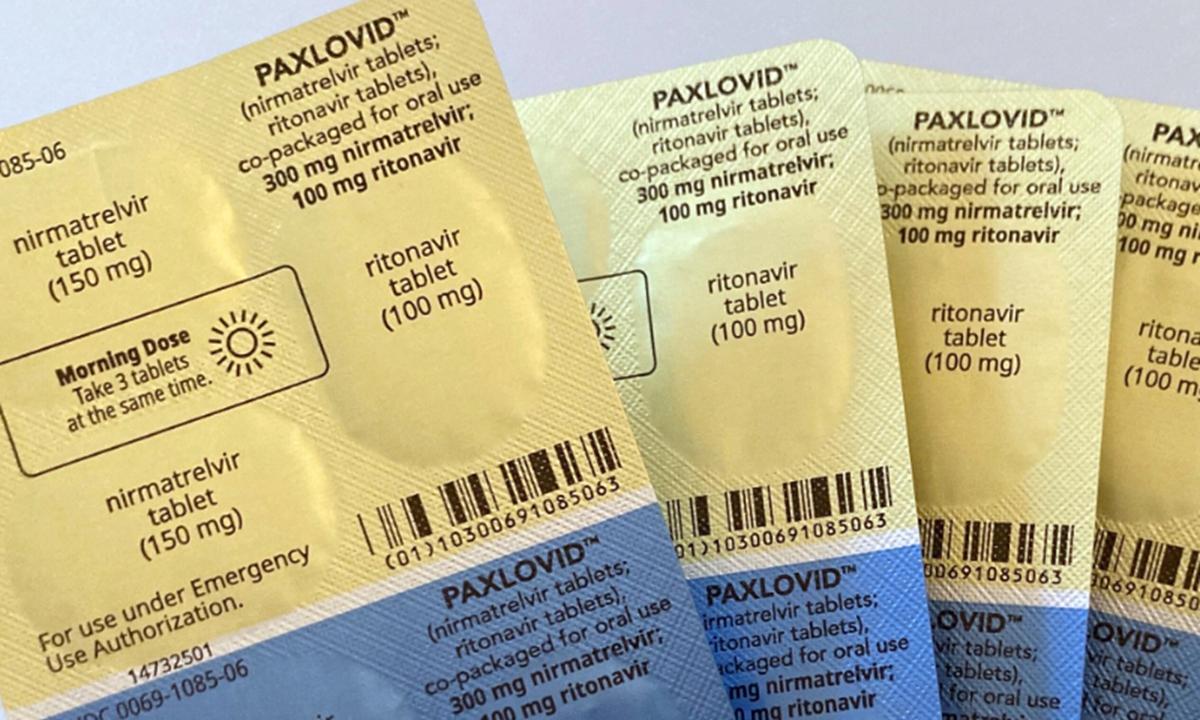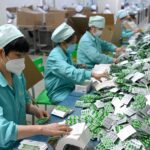What to focus on in a global public health crisis? Saving lives or chasing profit? Different countries and interest groups have given different answers. One latest example has happened in China. Pfizer’s COVID treatment drug, Paxlovid, did not make it into China’s national medical insurance program, as the negotiation between China’s National Healthcare Security Administration (NHSA) and Pfizer failed because of the drug’s high price.
On multiple international occasions, the US tends to brag about its international contributions and global leadership, including its leading and generous role in the battle against the pandemic. However in specific cases, US capital forces tend to show their business expansionism and insistence on maximizing their interests. For them, everything can be put on the trading table and profit always comes first.
In terms of adding Paxlovid in its insurance system, China has already showed flexibility. The NHSA said Paxlovid would continue to be eligible to be paid for by state medical insurance until March 31. But if we talk about putting the drug in the insurance system, comprehensive factors, especially the charge, must be pondered carefully. It is only natural for China to bargain for an appropriate price, because the money comes from taxpayers, it comes from the Chinese people, Shen Yi, a professor at Fudan University, told Global Times. At this point, caution is needed to prevent one medicine company to drain the entire pool of China, Shen added.
On the internet, some people have added a romantic filter to Paxlovid, calling it a “miracle drug” against COVID. It must have its efficacy, or it won’t be authorized for emergency use by the FDA or recommended by the WHO. But on the FDA official website, Paxlovid is described as “an investigational medicine,” meaning research about the drug is still going on, and that “there are limited clinical data available for Paxlovid. Serious and unexpected adverse events may occur that have not been previously reported with Paxlovid use.” According to reports and medical experts, the drug should be taken as soon as possible after a diagnosis of COVID and within 5 days of symptom onset, or it won’t work that well. The FDA also acknowledged that some patients developed recurrent COVID symptoms after completing a treatment course of Paxlovid. Moreover, Paxlovid conflicts with some medications prescribed for other conditions, experts caution.
As Zhang Boli, an academician from the Chinese Academy of Engineering, said, there is no wonder drug to the disease yet.
Paxlovid is not a miracle drug, it does not kill the virus, it merely prevents the virus from replicating. If it is magical, why are COVID deaths climbing once again in the US this winter?
People tend to believe there is or will be such a magical medicine amid the pandemic, especially when they are concerned about limited medical resources. And US capital forces have seized such mentality against the backdrop of information asymmetry – a condition under which there is an imbalance between two parties in their knowledge of relevant details – to stick to their high price, pursuing as much profit as possible, said Shen.
The US does not cast its eyes on the society’s general expectation, be it in the US or across the globe, when fighting COVID, but works the way how American interest groups want. It is not a secret that US capital forces have already accumulated quite a fortune from the world via selling vaccines and drugs, and the US government has been coordinating all along. There is no so-called human right, but monopoly.
During the past days, a growing number of US politicians and media outlets have been making shrill “warnings” about the epidemic in China, pretending to be worried about the spread of COVID in a big way, and about how global economy would be hit by the wave from China. If they do care about it, why don’t Pfizer drop some pursuit of the profit, and cooperate with China with a little more sincerity?
Otherwise, the more the US talks about morality and justice, the more hypocrisy it brings to light.













